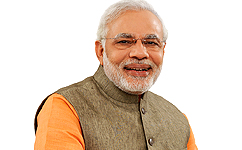New Delhi–Expressing their support for the November 8 demonetisation of high-value currency that has resulted in a major cash crunch, a group of experts on Tuesday told Prime Minister Narendra Modi that the move help to strengthen the process of formalising the Indian economy, the major part of which is organised informally.

“Demonetisation was discussed as a move towards formal economy,” NITI Aayog Vice Chairman Arvind Panagariya said, briefing reporters following Modi’s interaction here with a set of noted economists at a session on “Economic Policy – The Road Ahead” organised by the think-tank.
“All the speakers stressed the need to bring workers and activity into the formal sector,” Panagariya said in reference to the stated aims of the November 8 demonetisation announcement for curbing corruption, black money, counterfeit currency and terror financing.
Complementing the demonetisation process is the government’s drive to promote digital transactions and a less cash economy so as to move from the informal to greater formalisation of the economic system.
“The speakers pointed out that 90 per cent of the labour force in the country is still in the informal sector,” Panagariya added.
Besides Niti Aayog and Finance Ministry officials, the session was attended by economists and experts, including Pravin Krishna, Sukhpal Singh, Vijay Paul Sharma, Neelkanth Mishra, Surjit Bhalla, Pulak Ghosh, Govinda Rao, Madhav Chavan, N.K. Singh, Vivek Dehejia, Pramath Sinha, Sumit Bose and T.N. Ninan.
The meeting with experts to take stock of the economy assumes significance against the backdrop of the cash crunch after the government last month scrapped the Rs 1000 and Rs 500 notes.
Economists and various state governments have voiced concerns that demonetisation will disrupt the economy and drag down the GDP growth rate for this fiscal by up to two percentage points. (IANS)




